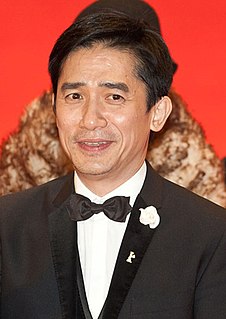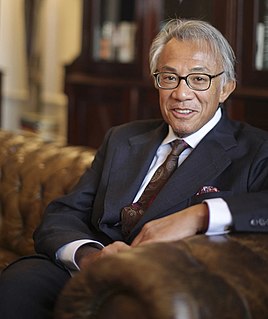A Quote by Quentin Tarantino
The next movie will be in Mandarin. I enjoyed shooting all the Japanese stuff in Kill Bill so much that this whole film will be entirely in Mandarin.
Related Quotes
The most difficult thing is that I don't speak Mandarin and I had this experience - of working in a language that I don't understand - before and it's really horrible. Eighteen years ago, I played a mute in one film because I couldn't speak Mandarin. There was another film where I had to speak Vietnamese. It's horrible!
You have hundreds of artists you're dealing with across the world and the scale of this movie [Kung Fu Panda] was insane - we had a parallel pipeline going on where you had two versions recording Mandarin voice actors, getting it to be funny for Mandarin audiences going beyond a straight translation, and then animating it and lighting it, it's a lot of work.
I would make a huge distinction between theater improvisation and film improvisation. There isn't much improvisation in film - there's virtually none. The people that theoretically could be good at this in a theater situation don't necessarily do this in a film in a way that will work, because it's much broader on a stage. But in a movie, it has to be real, and the characters have to look entirely real because it's being done as a faux documentary, so there are even fewer actors that can do that on film.
It'll be the Internet and piracy that will kill film. There's a philosophy that the Internet should be free, but the reality is that piracy will destroy the film industry and film as an art form because it's expensive to make a movie. Maybe you'll have funky little independent movies, and it'll go back and then start up again some other way.






































